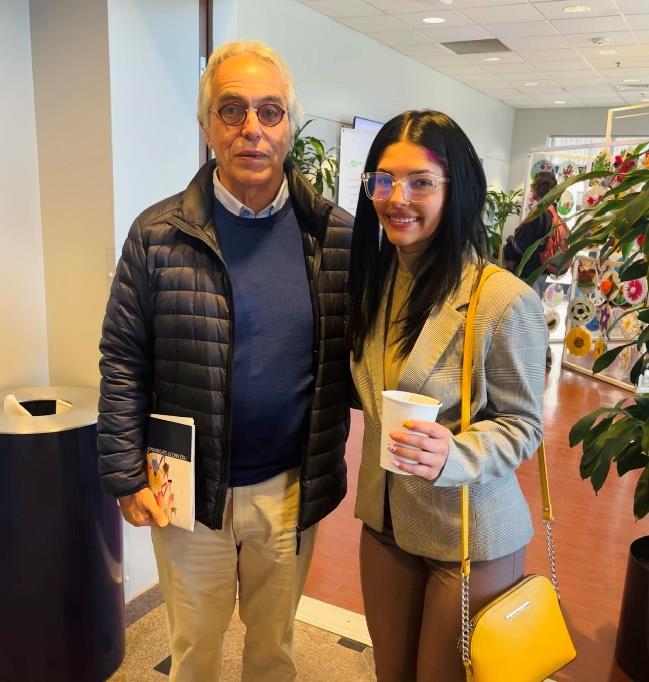- Apply
- Visit
- Request Info
- Give
Published on April 11, 2023
Evolving Landscapes of Human Rights: 20 Years of Interdisciplinarity & Innovation

Felishka Ramirez with former President of International American Court of Human Rights, Diego Garcia-Sayan.
Last week at the Dodd Human Rights Center at UConn, Storrs a conference was held celebrating two decades of human rights research and reflection. At the conference, the panel discussed memorials, along with the significance behind them. The symbolic meaning behind a memorial is the reparation of the injustices that occurred from those events. In other words, they are used to show accountability for tragedies and losses. Panelist Sergio Beltran Garcia (Forensic Architect) says, “Memory without reparation is damage”. Sergio has designed memorials in Mexico for victims of the ongoing war for reparations for the people in his country. This showed the audience that everyone has the right to speak the truth.
Of course, memorialization not only helps us remember these events in hopes it never happens again, but more must be done. The key component to this is judicial justice if not events are more likely to continue to occur. Humanity cannot remember those who have lost their lives unless there is justice. A detrimental situation usually happens to see a change in humanities day to day life. For example, panelist Claret Vargas (Senior Staff Attorney for the Center for Justice and Accountability) describes the death of 19 prisoners who were executed by the Argentina naval militia. These circumstances cause an impact on many families. But, more importantly, it ignited a fight for justice.
Ultimately, the panel reiterated how the judicial system affects memorialization if there is no truth. Diego Garcia-Sayan (former President of the International American Court of Human Rights) also states, “the process of the ruling is important for the states in regard to reparation”. Monetary reparations are one of the main functions to give justice to the victims. However, it is not often done which leaves humans without a sense of closure. Now is the time for human rights to continue to grow and evolve in hopes of more justice in the future.
Written by Felishka Ramirez

